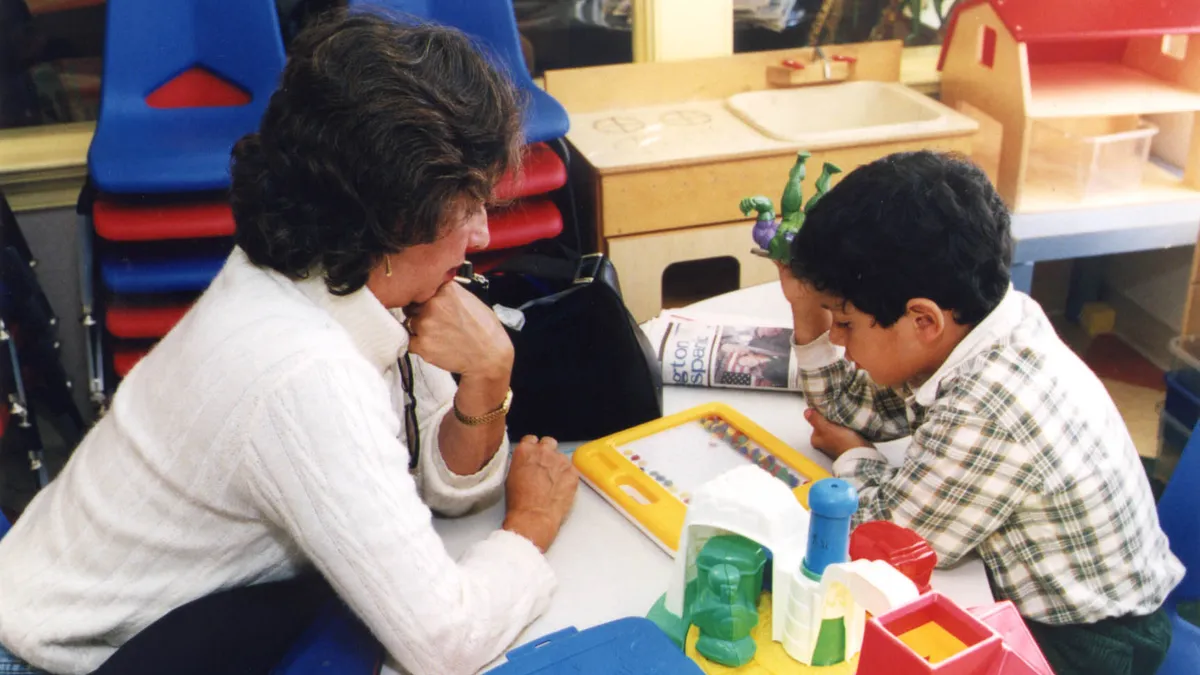Dive Brief:
-
Many students of color are put in special education for learning disabilities, but it’s more often due to social injustices rather than racially biased teachers, according to a study by Portland State University.
-
The study, which was published in the journal Sociological Quarterly, found that racial minorities are less likely than their white peers to be labeled as having a learning disability.
-
A student’s socioeconomic status is a predominant factor in predicting academic achievement, and academic achievement is often used to diagnose learning disabilities, with students also often incorrectly classified as having a disability because of language barriers and immigration history, the study says.
Dive Insight:
The study’s findings reveal a broad problem: Calling a lack of achievement — which is often based on socioeconomic status — a disability doesn’t address the achievement gap and the issues behind it. Dara Shifrer, the study’s lead author and a sociology professor at Portland State, made this point in a university news release, saying instead of enrolling minorities in special ed, we need to look at the inequalities that exist in society.
Minority students, including those who are African-American or Hispanic, often face economic, health or educational disadvantages, the American Psychological Association says. They’re more likely to be in poverty, have poor access to health care, or face psychological distress.
On top of that, discrimination and marginalization can make it even harder for these students to improve their socioeconomic statuses, the APA notes. And in certain schools, where the environment looks more like a prison than a classroom and harsh disciplinary policies are given out for small infractions like violating dress code, predominantly minority students are often funneled into the school-to-prison pipeline as a result.
Solving the problem, or taking the first steps to address it, needs to go farther than a label. More funding for early childhood education programs and greater transparency from teachers, Shifrer said, will get support for the students who need it the most. But there’s a lot more that can be added to the list of items to change, like re-evaluating the system that’s getting students jail time instead of class time, or giving minority students someone who looks like them to look up to.






 Dive Awards
Dive Awards







